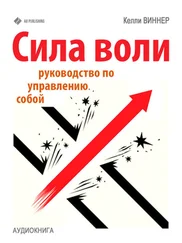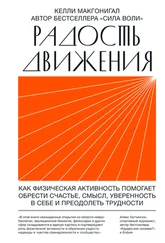70 Kurzban, R. «Does the Brain Consume Additional Glucose During Self-Control Tasks?» Evolutionary Psychology 8 (2010): 244–59.
71 Wang, X. T., and R. D. Dvorak. «Sweet Future: Fluctuating Blood Glucose Levels Affect Future Discounting». Psychological Science 21 (2010): 183–88.
72 Routh, V. N. «Glucose Sensing by the Brain: Implications for Diabetes». UMDNJ Research 8 (2007): 1–3.
73 Symmonds, M., J. J. Emmanuel, M. E. Drew, R. L. Batterham, and R. J. Dolan. «Metabolic State Alters Economic Decision Making under Risk in Humans». PLoS ONE 5 (2010): e11090.
74 Gailliot, M. T. «Hunger Impairs and Food Improves Self-Control in the Laboratory and Across the World: The Hyperbole of Reducing World Hunger as a Self-Control Panacea». (2011, under review).
75 Pollan, M. Food Rules: An Eater’s Manual. New York: Penguin, 2009.
76 Oaten, M., and K. Cheng. «Improved Self-Control: The Benefits of a Regular Program of Academic Study». Basic and Applied Social Psychology 28 (2006): 1–16.
77 Finkel, E. J., C. N. DeWall, E. B. Slotter, M. Oaten, and V. A. Foshee. «Self-Regulatory Failure and Intimate Partner Violence Perpetration». Journal of Personality and Social Psychology 97 (2009): 483–99.
78 Baumeister, R. F., M. Gailliot, C. N. DeWall, and M. Oaten. «Self-Regulation and Personality: How Interventions Increase Regulatory Success, and How Depletion Moderates the Effects of Traits on Behavior». Journal of Personality 74 (2006): 1773–801. Див. також: Muraven, M., R. F. Baumeister, and D. M. Tice. «Longitudinal Improvement of Self-Regulation through Practice: Building Self-Control Strength through Repeated Exercise». The Journal of Social Psychology 139 (1999): 446–57. Див. також: Muraven, M. «Building Self-Control Strength: Practicing Self-Control Leads to Improved Self-Control Performance». Journal of Experimental Social Psychology 46 (2010): 465–68. Див. також: Oaten, M., and K. Cheng. «Improvements in Self-Control from Financial Monitoring». Journal of Economic Psychology 28 (2007): 487–501.
79 Geyskens, K., S. Dewitte, M. Pandelaere, and L. Warlop. «Tempt Me Just a Little Bit More: The Effect of Prior Food Temptation Actionability on Goal Activation and Consumption». Journal of Consumer Research 35 (2008): 600–10.
80 Noakes, T. D., A. St. Clair Gibson, and E. V Lambert. «From Catastrophe to Complexity: A Novel Model of Integrative Central Neural Regulation of Effort and Fatigue During Exercise in Humans: Summary and Conclusions». British Journal of Sports Medicine 39 (2005): 120–24.
81 Noakes, T. D., J. E. Peltonen, and H. K. Rusko. «Evidence That a Central Governor Regulates Exercise Performance During Acute Hypoxia and Hyperoxia». The Journal of Experimental Biology 204 (2001): 3225–34.
82 Job, V, C. S. Dweck, and G. M. Walton. «Ego Depletion — Is It All in Your Head? Implicit Theories About Willpower Affect Self-Regulation». Psychological Science 21 (2010): 1686–93.
83 Muraven, M., and E. Slessareva. «Mechanisms of Self-Control Failure: Motivation and Limited Resources». Personality and Social Psychology Bulletin 29 (2003): 894–906.
84 Crelley, D., S. Lea, and P. Fisher. «Ego Depletion and the Tragedy of the Commons: Self-Regulation Fatigue in Public Goods Games». Presented at the 2008 World Meeting of the International Association for Research in Economic Psychology and the Society for Advancement of Behavioral Economics, Rome.
85 Diamond, J. Collapse: How Societies Choose to Fail or Succeed. New York: Viking, 2004. Економічна модель: Bologna, M., and J. C. Flores. «A Simple Mathematical Model of Society Collapse Applied to Easter Island». EPL (Europhysics Letters) 81 (2008): 480–86.
86 Just, D. R., and B. Wansink. «Smarter Lunchrooms: Using Behavioral Economics to Improve Meal Selection». Choices 24 (2009).
87 Thaler, R. H., and C. R. Sunstein. Nudge: Improving Decisions About Health, Wealth, and Happiness. New York: Knopf, 2008.
Розділ 4. Ліцензія на гріх: чому добрі справи дають нам дозвіл на погані вчинки
88 Monin, B., and D. T. Miller. «Moral Credentials and the Expression of Prejudice». Journal of Personality and Social Psychology 81 (2001)33–43.
89 Fishbach, A., and R. Dhar. «Goals as Excuses or Guides: The Liberating Effect of Perceived Goal Progress on Choice». Journal of Consumer Research 32 (2005): 370–77. Див. також: Fishbach, A., and Y. Zhang. «Together or Apart: When Goals and Temptations Complement Versus Compete». Journal of Personality and Social Psychology 94 (2008): 547–59.
90 Sachdeva, S., R. Iliev, and D. L. Medin. «Sinning Saints and Saintly Sinners». Psychological Science 20 (2009): 523–28.
91 Mukhopadhyay, A., and G. V. Johar. «Indulgence as Self-Reward for Prior Shopping Restraint: A Justification-Based Mechanism». Journal of Consumer Psychology 19 (2009): 334–45.
92 Mick, D. G., and M. Demoss. «Self-Gifts: Phenomenological Insights from Four Contexts». Journal of Consumer Research 17 (1990): 322–32.
93 Khan, U., and R. Dhar. «Licensing Effect in Consumer Choice». Journal of Marketing Research 43 (2006): 259–66.
94 Haidt, J. «The Emotional Dog and Its Rational Tail: A Social Intuitionist Approach to Moral Judgment». Psychological Review 108 (2001): 814–34.
95 Fishbach, A., and R. Dhar. «Goals as Excuses or Guides: The Liberating Effect of Perceived Goal Progress on Choice». Journal of Consumer Research 32 (2005): 370–77.
96 Fishbach, A., and R. Dhar. «Goals as Excuses or Guides: The Liberating Effect of Perceived Goal Progress on Choice». Journal of Consumer Research 32 (2005): 370–77. Див. також: Fishbach, A., R. Dhar, and Y. Zhang. «Subgoals as Substitutes or Complements: The Role of Goal Accessibility». Journal of Personality and Social Psychology 91 (2006): 232–42.
97 Mukhopadhyay, A., J. Sengupta, and S. Ramanathan. «Recalling Past Temptations: An Information-Processing Perspective on the Dynamics of Self-Control». Journal of Consumer Research 35 (2008): 586–99.
98 Fishbach, A., and R. Dhar. «Goals as Excuses or Guides: The Liberating Effect of Perceived Goal Progress on Choice». Journal of Consumer Research 32 (2005): 370–77.
99 Wilcox, K., B. Vallen, L. Block, and G. J. Fitzsimons. «Vicarious Goal Fulfillment: When the Mere Presence of a Healthy Option Leads to an Ironically Indulgent Decision». Journal of Consumer Research 36 (2009): 380–93.
100 Khan, U., and R. Dhar. «Where There Is a Way, Is There a Will? The Effect of Future Choices on Self-Control». Journal of Experimental Psychology 136 (2007): 277–88.
101 Zauberman, G., and J. J. G. Lynch. «Resource Slack and Propensity to Discount Delayed Investments of Time Versus Money». Journal of Experimental Psychology 134 (2005): 23–37.
102 Tanner, R. J., and K. A. Carlson. «Unrealistically Optimistic Consumers: A Selective Hypothesis Testing Account for Optimism in Predictions of Future Behavior». Journal of Consumer Research 35 (2009): 810–22.
103 Rachlin, H. The Science of Self-Control. Cambridge: Harvard University Press, 2000, 126–27.
104 Chandon, P, and B. Wansink. «The Biasing Health Halos of Fast-Food Restaurant Health Claims: Lower Calorie Estimates and Higher Side-Dish Consumption Intentions». Journal of Consumer Research 34 (2007): 301–14.
105 Chernov, A. «The Dieter’s Paradox». Journal of Consumer Psychology (in press).
106 Mukhopadhyay, A., and G. V Johar. «Indulgence as Self-Reward for Prior Shopping Restraint: A Justification-Based Mechanism». Journal of Consumer Psychology 19 (2009): 334–45.
107 Schuldt, J. P, and N. Schwarz. «The ‘Organic’ Path to Obesity? Organic Claims Influence Calorie Judgments and Exercise Recommendations». Judgment and Decision Making 5 (2010): 144–50.
Читать дальше












